4 Port Rapid Cigarette USB Car Charger With 5V 6.8A
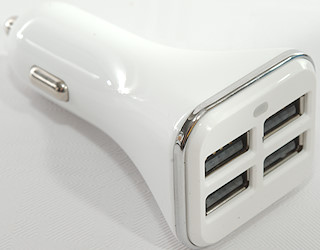
Official specifications:
- DC Input: 12-24V
- DC output: 5V/6.8A
- Product Size: 66.54*37.84*32.4mm
I got it from ebay dealer: smile_cc
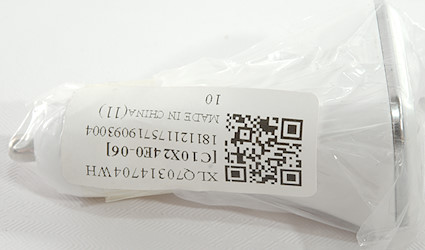
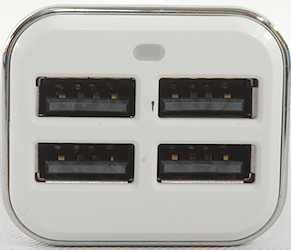
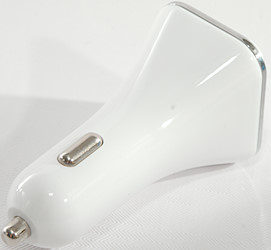
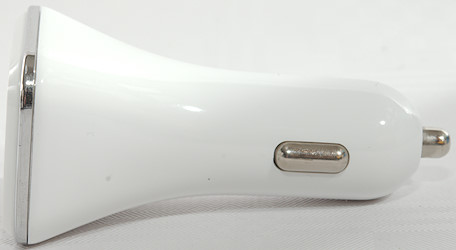
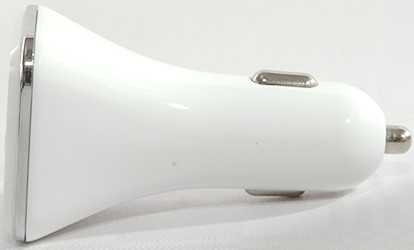
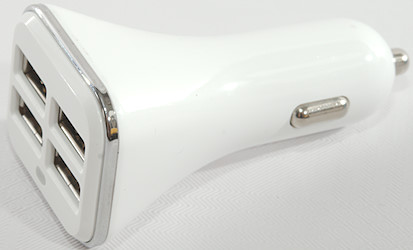
Measurements
- Power consumption when idle is 3.7mA from 12V and 2.4mA from 24V
- All USB outputs is coded as Apple 2.4A
- All USB outputs are in parallel.
- There is a blue led behind at the front.
- Weight: 27.3g
- Length: 72mm
- Front: 32.4 x 38mm
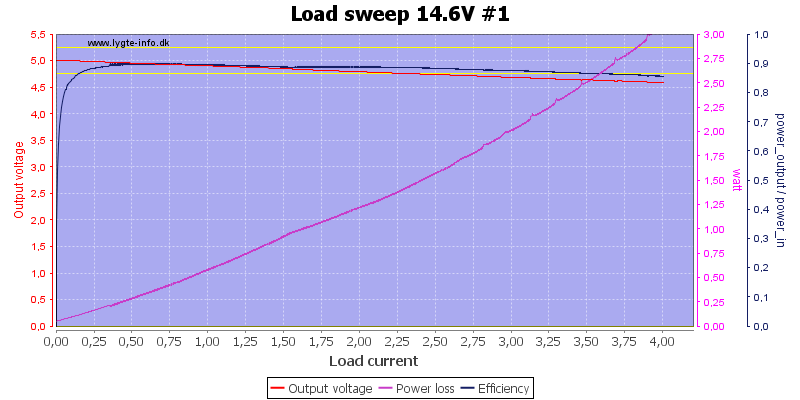
A USB output can deliver more than 4A, this means no individual port protection.
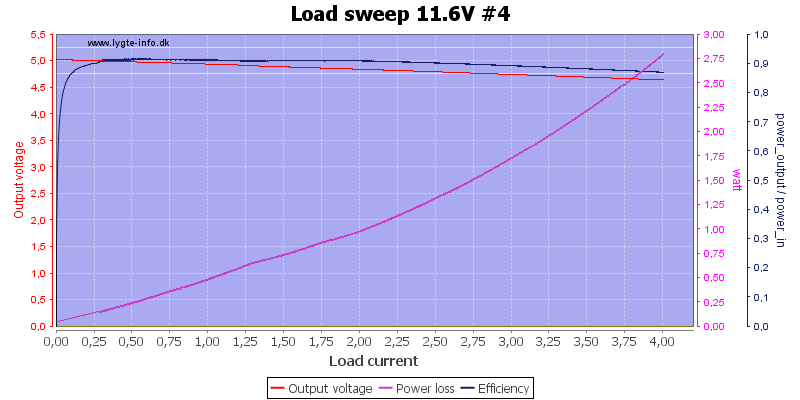
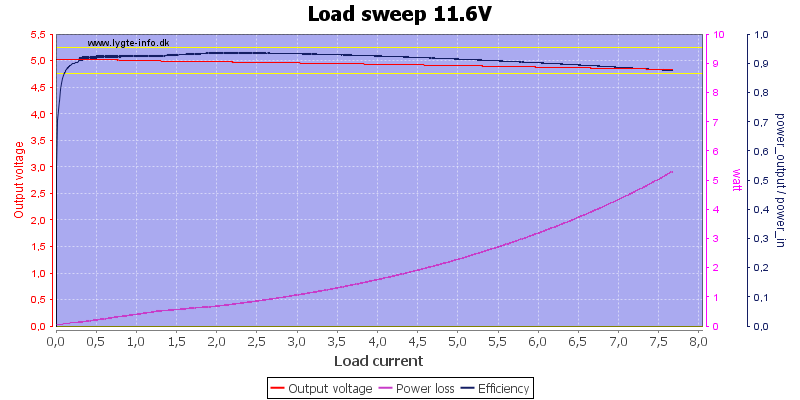
Running all port in parallel the maximum output current is around 7.6A with a nearly flat car battery.
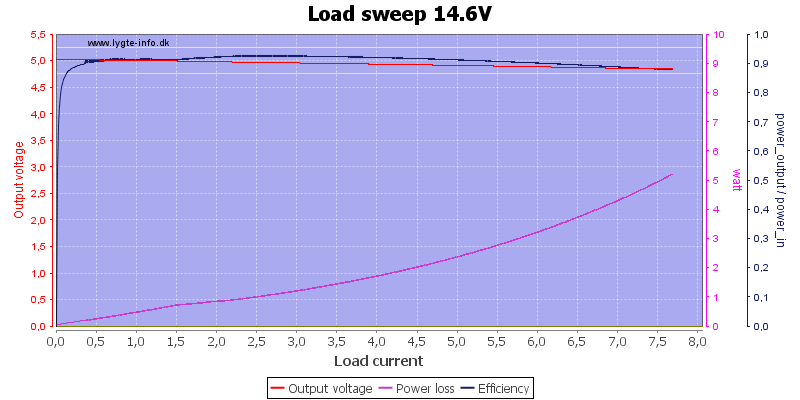
The same is true for a full car battery.
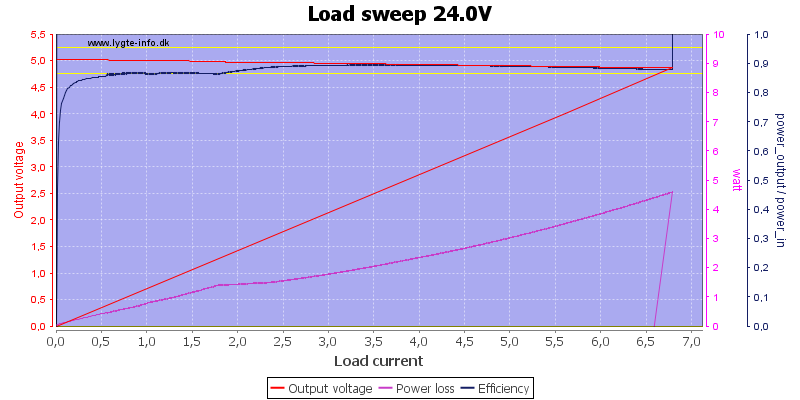
But the output current is lower when using 24V
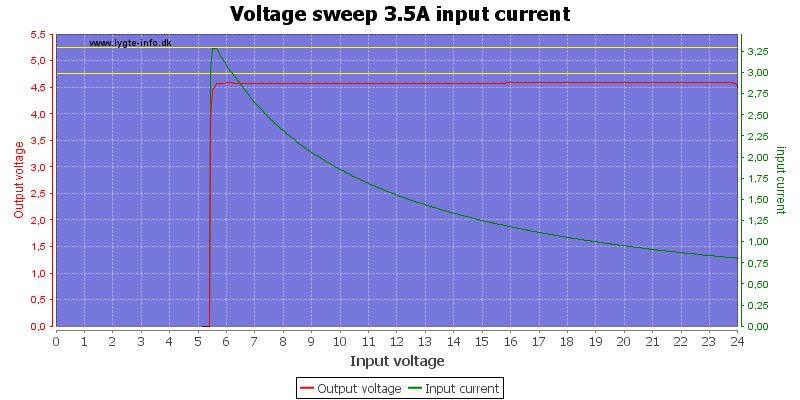
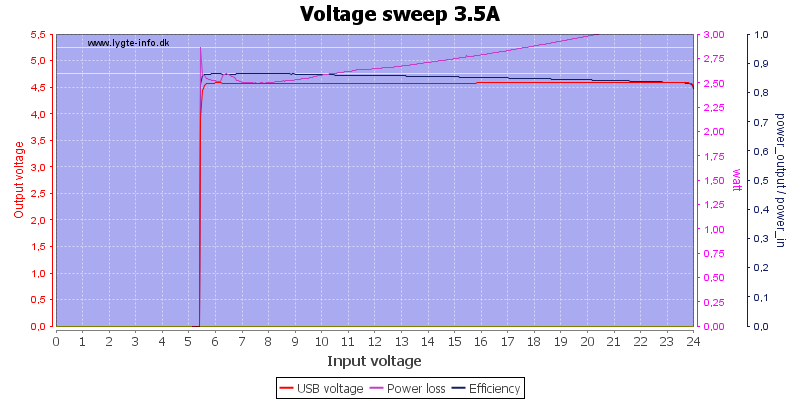
With a total of 3.5A load it works down to about 5.5V.
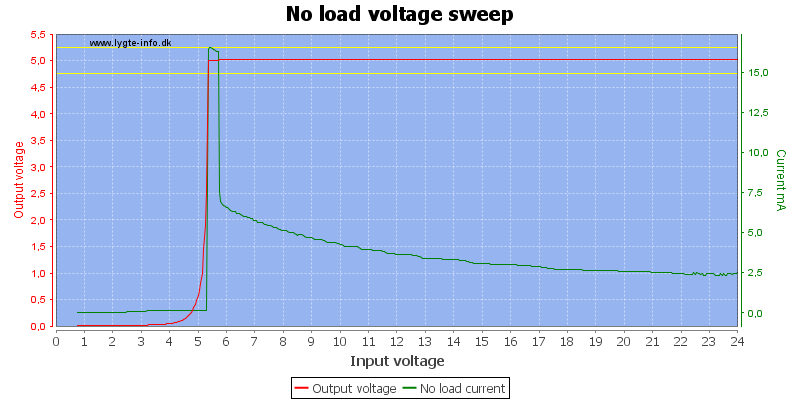
The unloaded input current is fairly low.
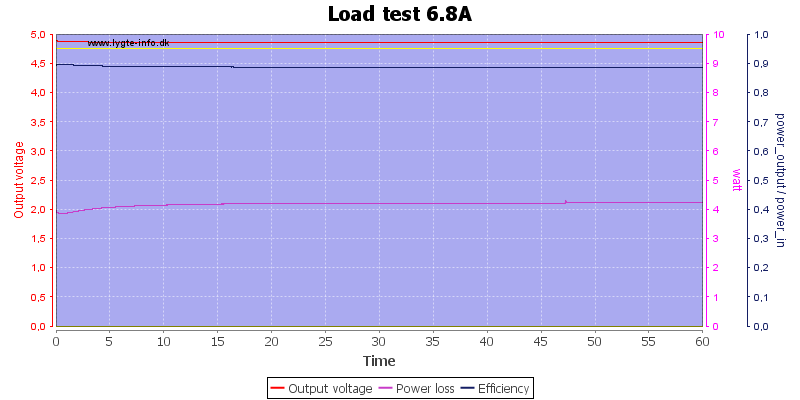
I did this test at 6.8A and the charger could handle that.
The temperature photos below are taken between 30 minutes and 60 minutes into the one hour test.
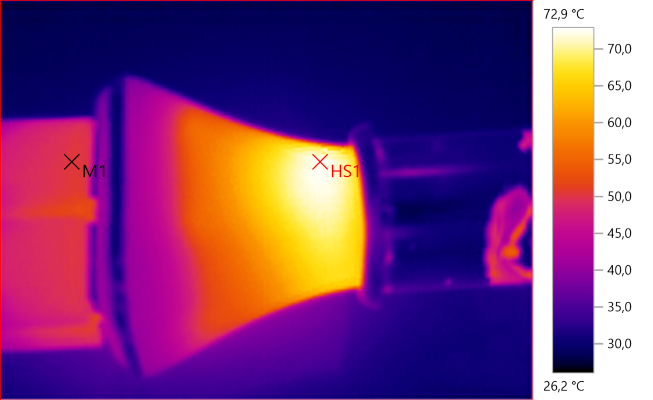
M1: 50.4°C, HS1: 72.9°C
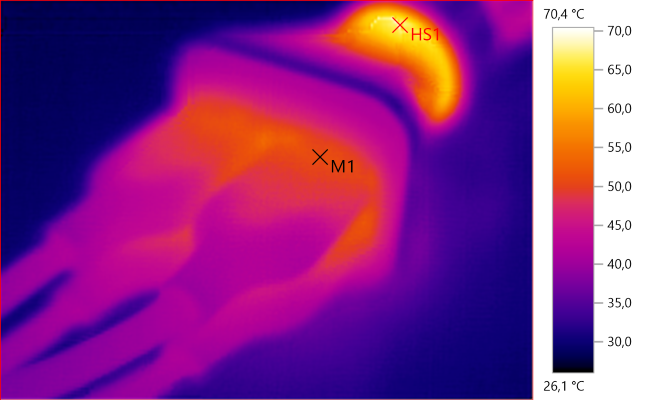
M1: 50.8°C, HS1: 70.4°C
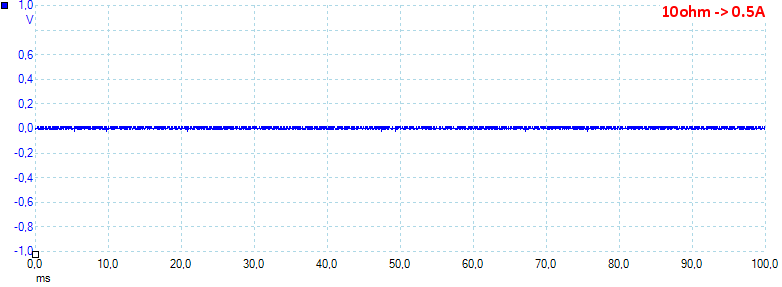
Noise at 0.5A output is 6mV rms and 76mVpp
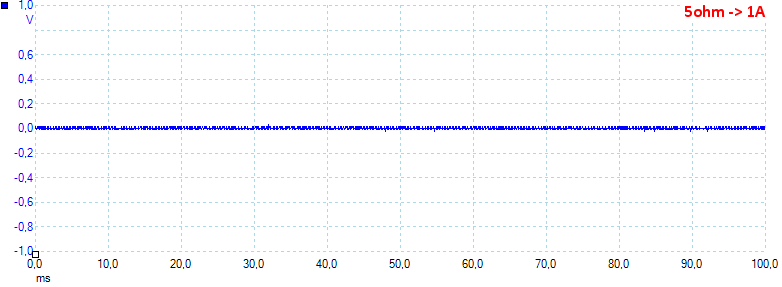
Noise at 0.5A output is 7mV rms and 92mVpp
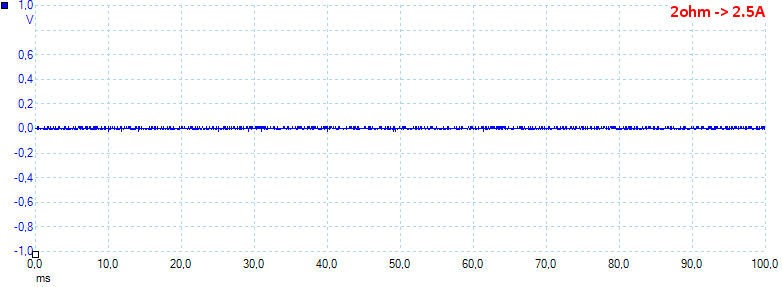
Noise at 0.5A output is 5mV rms and 55mVpp
Tear down
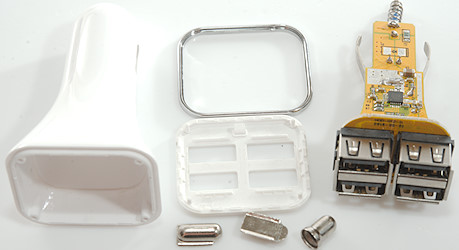
A bit pressure on the sides and the front popped loose.
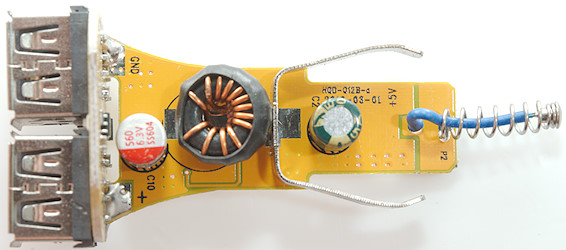
On this side is the inductor, the current ability of the tail input spring is reinforced with a wire.
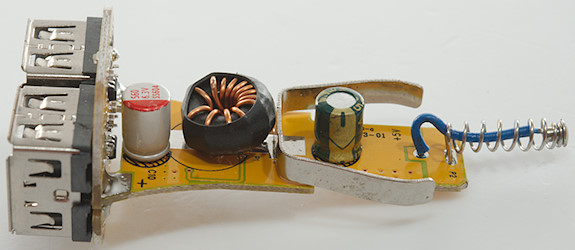
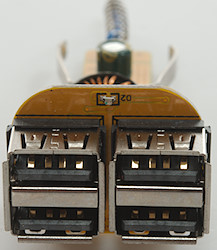
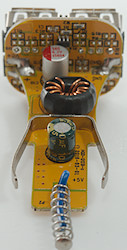
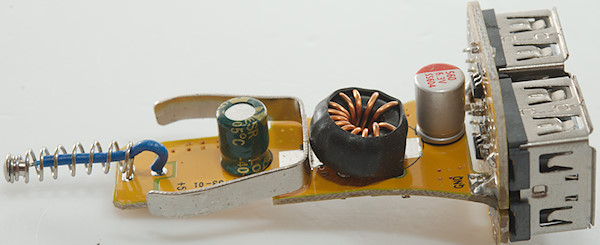
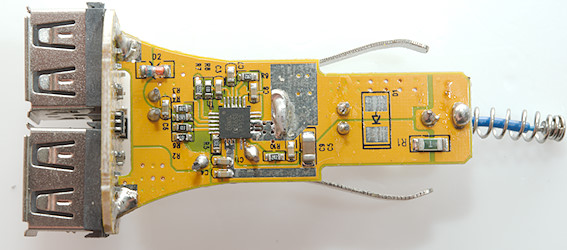
At the input is a fuse (R1), there is a synchronous switcher IC (U1: GS92A3). The chip is rated for 3V to 28V, this is bit low for 24V car systems, the chip can deliver 8A output.
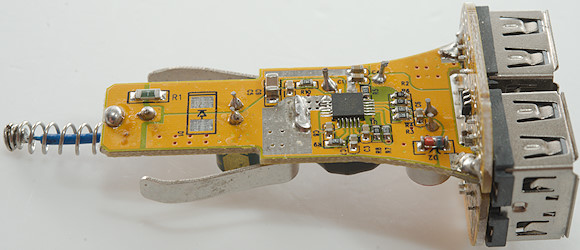
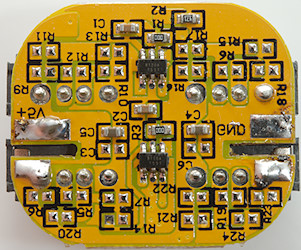
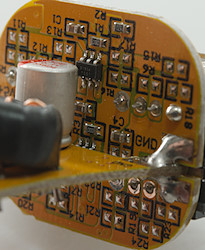
There is a auto coding chip, but my tester did not detect it. This circuit board also makes it possible to make specific codings with resistors.
Conclusion
This charger is fairly good, especially for a cheap charger, with low output noise and lots of current, but the auto coding is not working correctly and there is no individual port protection. I would not recommend using it on a 24V system.
Notes
The charger was supplied by a reader for review.
Read more about how I test USB power supplies/charger
Compare car chargers and other DC supplied chargers






























